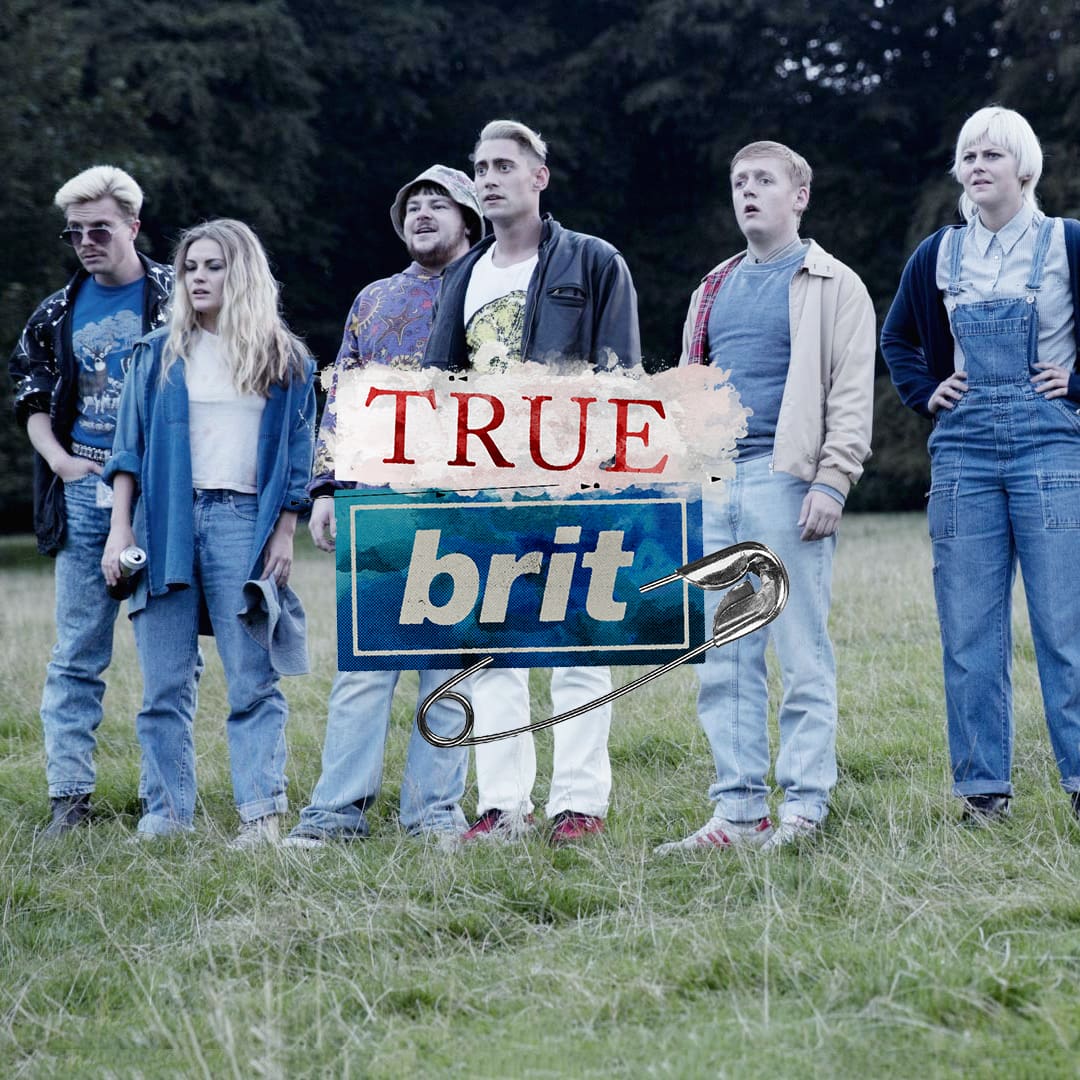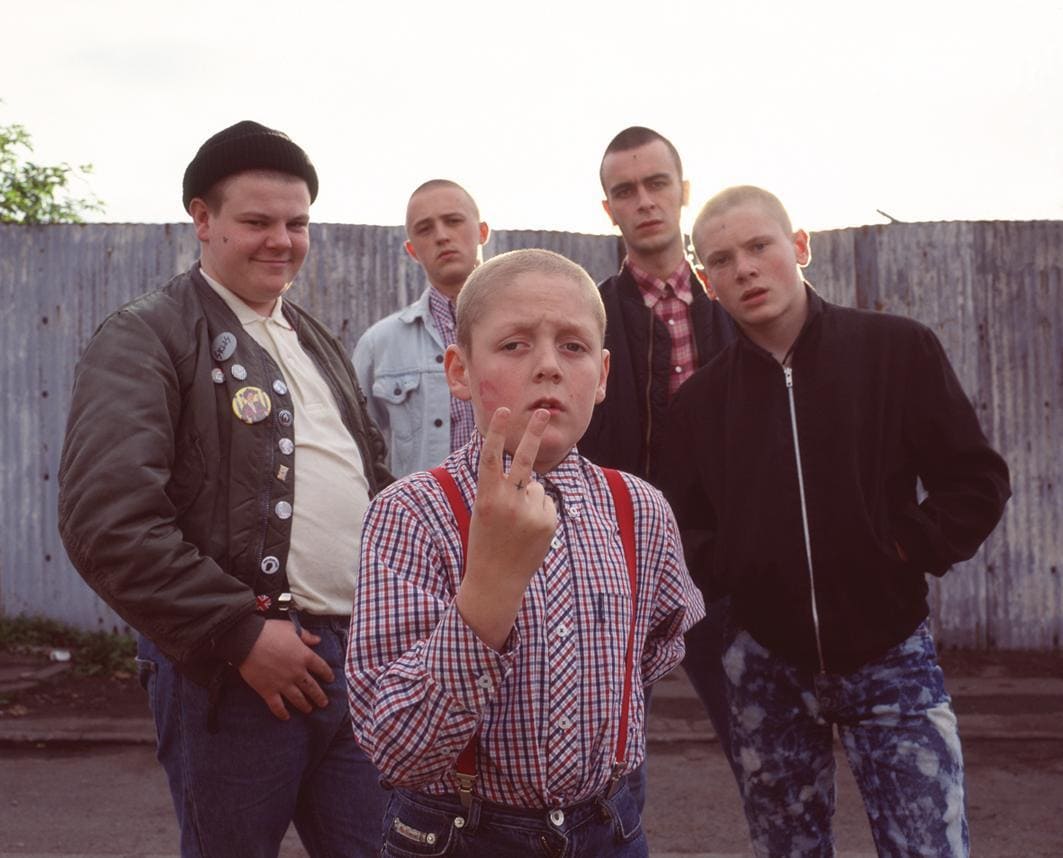

This Is England, the original cast from 2006
It’s been 15 years since Shane Meadows’s breakthrough This Is England hit cinemas. For many, it was the gateway into the world of British kitchen sink drama – a genre devoid of fantasy and make belief. However, this was not Meadows’s first venture into film. He’d had a long track record of filmmaking waiting to be watched by this new wave of fans, films such as A Room For Romeo Brass and Small Time still remained fairly undiscovered. Originally born in the Midlands, in Uttoxeter, Staffordshire, Meadows moved to Nottingham aged 20 and it was his experience of the Midlands and Nottingham in particular that facilitated him to produce a sublime and vast filmography.
Born in South London in 1994, my identity was very much allied with the capital city. I supported a London club, I spoke London slang and I tapped my Oyster card to get to school. I was only a half-blood though, my father came from Nottingham. He said words like ‘bath’ and ‘path’ differently to me, much to my endless amusement. Every trip to Nottingham to visit the grandparents was an eye opener. It was like the Wild West. I can recall so clearly thinking that the kids were just so outwardly intrepid and fearless, they would haphazardly dash across dual carriageways and playfight out in the deep woods. The streets were harsh, much like London’s, but there was a distinctive warmth that I couldn’t quite put my finger on. Years later I located this sensation once more in the films of Shane Meadows.
Robert Carlyle in Once Upon A Time In The Midlands (2002)
1950s kitchen sink drama helped to recognise the lives of working-class Britain. The culture wasn’t glamorous or enviable but provided a genuine platform for British storytelling. Often compared to Ken Loach, Meadows inherited a style of filmmaking that would acknowledge the rich past of British realism, emphasised flawlessly in Loach’s Kes and A Taste of Honey. Meadows aimed high to kept the genre’s heart beating, and after years of making hilarious short films he released Small Time, his first directorial debut and low budget comedy-drama that followed a group of small time criminals around the village of Sneinton, Nottingham. What Meadows does so magnificently is build such a convincing atmosphere that you feel a part of it, whether you’re a Midlander or not. Crowded coffee table scenes are bombarded with an infectious and charming Nottingham wit. Sporting ridiculous wigs, the motley crew predominantly improvise their way through their quaint Nottinghamshire village.
Meadows’s sense of humour is unmistakably British, for example my favourite scene in Small Time is centred around a discussion on how the group of friends are deeply concerned their mate has turned soft because he’s started drinking wine. What makes some of his early work stand out is how you can sense the pure enjoyment that went into making it. Works like Small Time are a perfect window into genuine modern working-class humour. During the 90s, television was bombarded with great comedy shows such as The Royle Family and The League of Gentlemen, and Meadows realised that he could bring this humour to the big screen.

A Room For Romeo Brass (1999)
Soon after Small Time came Twenty Four Seven, starring Bob Hoskins. Once again focussed around an ensemble of small town ‘deadbeats’, the film explores the working-class obsession with boxing. Alan Darcy (Hoskins) unselfishly attempts to inspire the locals to allocate their time to the discipline, as opposed to criminally rampaging their way through their apparently unpromising lives. Shot entirely in black and white, Ashley Rowe’s photography is stark and frowzy, whilst the characters are comic and animated. Their lives have been eternally shadowed by the darkness of their rejection from the comforts and opportunities that the middle-class enjoy. Although their upbringings have been plagued with alcoholism and violence, Meadows still manages to exhibit this scatty yet loveable charm within the working-class, tight-knit communities of the Midlands.
There’s a continued theme of frustration amongst the young men in Meadows’s films that directly nods to the beginnings of British kitchen sink drama. Spawning from the 1956 John Osbourne play Look Back In Anger, these so-called ‘angry young men’ are pictured aimlessly navigating through life. Meadows superbly constructs a cinematic universe where these issues are depicted as genuine problems that for the most part don’t ever get solved, they unfortunately tend to spiral wildly out of control.

Richard Burton and Mary Ure star in the film adaptation of John Osborne’s 1954 play Look Back In Anger
Shot across 42 days in Nottingham, A Room for Romeo Brass (1999) is my personal favourite. Featuring Paddy Considine, it is the first collaboration between the two whom initially met at performing arts class in college. Following the friendship of two 12-year-old lads, Romeo and Gavin, the boys one day meet Morrell (Paddy Considine), a nervy and unpredictable local who suspiciously weaves his way into their friendship. A Room For Romeo Brass is playful and sports memorable scenes of pure childhood ecstasy. From trips to the beach to living room antics, it enchantingly celebrates that initial simplicity of early childhood friendship. Paddy Considine emphasises why he’s such a great character actor, playing the buffoon and comically stumbling into the lives of Gavin and Romeo, much to this dismay of their families.
Nottingham’s working-class is presented in a beautifully endearing way – with such little money they rely on their bond with one another and it’s once again their humour that bonds them and the story together. The identical two-up two-down houses featured are rife with domestic issues but it’s their intrinsic nature of companionship amongst the families that bring everyone together. Meadows has inherited a deep understanding of how British working-class culture should be portrayed, and has admitted that his films are pretty much all autobiographical. A Room For Romeo Brass was the first to include a full soundtrack. Featuring the likes of Beck, The Specials and Fairport Convention, Meadows’s eclectic taste in music would later be praised in This Is England.
Once Upon A Time In The Midlands was Meadows’s fourth feature film and bizarrely blends the quirks of Midlands living with the constructs of Hollywood’s Western films. Red-faced alcoholics strut and swagger as if they were authentic cowboys, and in some respects they are, but not the sort to lasso a cow, more the type to stumble into a bar and start a fight. Meadows is known for reusing actors across his films and by Once Upon A Time In The Midlands you begin to develop a relationship and familiarity with the actors, sparking a feeling of belonging and comfort as you watch through his filmography.
However light some of his films may come across none of them will ever match the sheer darkness of his 2004 thriller Dead Man’s Shoes. Meadows typically conveys optimism within the working-class but this is more often than not partnered with the unforgiving reality that there is no way out, and there is no exception with Dead Man’s Shoes. Violence, addiction and greed cloud over the rays of hope that intermittently shine through; bleak it may be the notion of British economical struggle is necessary to communicate his message. With only This Is England breaking the one million pound budget Meadows independent films are consistently low budget yet they don’t feel that way. Soulless at times, Hollywood desperately lacks the sentiment that directors like Meadows have, with the focus on working people not only inspiring conversation but educating a potentially ignorant audience.

Paddy Considine and Toby Kebbell star in 2004’s Dead Man’s Shoes
Whilst This Is England felt fresh, for many it just happened to be the big breakout film of Meadows career, winning the Bafta for Best film and becoming one of the most important British films of all time. Thomas Turgoose, just 13 at the time, came from a background with no previous acting experience and had been relentlessly expelled from school, audaciously demanding five pounds for his time during the audition process. These approaches to filmmaking that Meadows took allowed for a more organic and convincing emotion throughout the movie, enhancing the realism with real people. Meadows continues to involve himself in British film and TV, with his three-series-long This Is England on Channel 4 and three-part 2019 series The Virtues. But it is his early work that truly inspired new and future generations of British filmmakers.
There are rare moments in British cinema that shape the industry for years after and Meadows has been responsible for numerous remarkable feats. In a time where a global pandemic has struck uncertainty and paranoia into the masses, I would have loved to see the reactions of Meadows riotous characters as they would have been forced to stay put in the confines of their Nottinghamshire homes. Whether you are British or not these films give you a sense of belonging, the characters charisma lure you into their disorganised lives of mishap and struggle. His relationship with region is utterly unique, Nottingham is not only used for its expansive countryside and dingy pubs but as a starting point and common ground that ties his films together. For me understanding any other place but London was confusing growing up, especially on trips to the Midlands but Meadows has helped me awaken a previously dormant Midlands state of mind.




